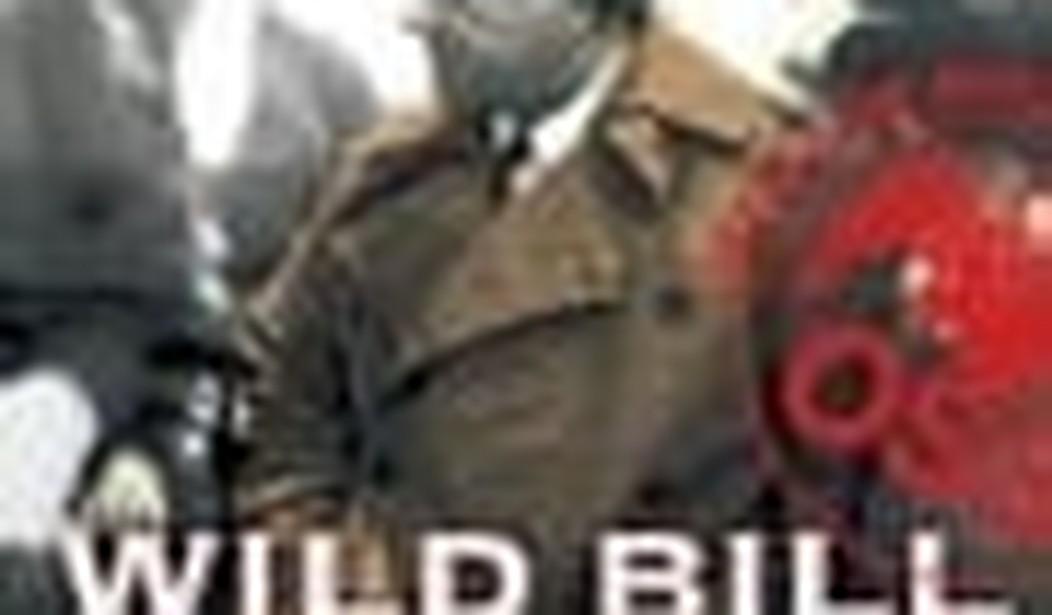Wild Bill Donovan:
The Spymaster who Created the OSS and Modern American Espionage
By Douglas Waller
Free Press, 466 pp.
Journalist Douglas Waller’s Wild Bill Donovan: The Spymaster who Created the OSS and Modern American Espionage is billed as the first definitive biography of William Donovan, head FDR’s Office of Strategic Services. Donovan ran covert ops in WWII and was effectively the godfather of the CIA.
But the differences between the modern American espionage agency exposed in Ishmael Jones’s The Human Factor and the force envisioned by Donovan is evident from the book’s title. “Wild Bill” would never have allowed his agency to become a deskbound and risk-averse bureaucracy in a dangerous world where Americans are under constant threat.
What readers are most likely to take away from reading Wild Bill Donovan is that he did a truly amazing job of creating his spy agency out of whole cloth, while his country was at war — and with more opposition domestically than he faced from the enemy. Despite heroic service in WWI, Donovan’s only experiences with espionage were his pre-war travels in which he, somewhat informally, reported his findings back to FDR — despite his vocal opposition to the New Deal as a Republican candidate for governor of New York.
One might think this means that Donovan was an ultra-organized master of bureaucracy. But Waller makes it plain that Donovan was a “lousy manager” who wrestled the OSS into existence through creativity and the sheer force of will.
“Wild Bill” also earned his nickname by being a lousy husband, perhaps the least discreet public figure of his era. He also took needlessly reckless risks by “participating” in most of the amphibious landings in the European theater for no practical reason. Shortly after D-Day, he came close to capture, not only risking the lives of those around him, but of all of America’s secret operations.
Waller has a villain for his story too — FBI Director J. Edgar Hoover. Hoover is basically a cartoon character in this book, which is unfortunate since Donovan’s antics did give anyone who thought of him as an amateur in his field a valid point. This OSS was no MI-6, and Donovan was no Stewart Menzies.
Waller is dismissive of the late great Anthony Cave Brown’s epic biography Wild Bill Donovan: the Last American Hero as being “wildly speculative” in parts and containing “numerous errors.” But at least Cave Brown covered the activities of the OSS (too exhaustively for some critics) enough to put Donovan’s contribution in perspective. Waller focuses so much on the personal that one might wonder what all the fuss is about. He also is not error free. In his discussion of the Valkyrie plot (which Cave Brown does much better), Waller misidentifies resistance stalwart Count von Helldorf (the man played by Kenneth Branagh in the film) as a “longtime Nazi.”
Donovan’s achievements during the war were somewhat modest — burgling the embassies of neutral embassies to steal the keys to codes and arming the Maquis to delay the German’s reinforcement of Normandy stand out. His intelligence network in Istanbul, run by a handpicked agent, was a complete and corrupt disaster, however.
While the OSS was disbanded because Harry Truman feared a central intelligence agency would become an American “Gestapo,” Donovan was active in the prosecution of German war criminals — only he had foreseen the need to collect evidence and dossiers as the war ended — and he finished his career as the staunchly anti-communist ambassador to Thailand. There, he was ironically working more like a CIA station chief than an ambassador, and supervised by his former underling, Allen Dulles, director of the CIA.
Despite the OSS’s mistaken assessment of Ho Chi Minh as merely a “nationalist” during WWII, Donovan became a vocal advocate of fighting his Communist movement in Southeast Asia.
At times, Waller’s narrative seems as disorganized and wrongly focused as its subject was wont to be. However, it is a valuable — and mostly fascinating — look at a woefully under-reported subject. When you consider sheer volume of WWII literature and the numerous biographies of minor characters and generals that fill the shelves, it’s almost criminal that Wild Bill Donovan would be so neglected.









Join the conversation as a VIP Member